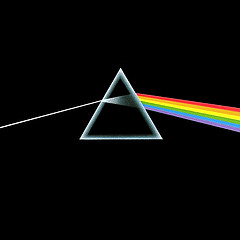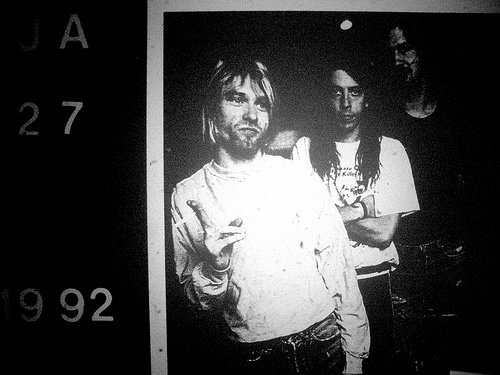There's been a lot of bad press about rock being in decline in terms of sales, video and radio airplay, and creativity being at low ebb, resulting in fewer outlets for rock music.
Is it true? First of all, let's evaluate a silly statement made in recent industry press claiming that classic rock like Pink Floyd is in decline. This one is so dumb that it's barely worth responding to. Bottom line: classic rock has never been more popular, and in fact the great bands of every era are being discovered by more young music fans than ever before.

Photo Credit: El Silver
But what about current based rock? Why are there so few success stories when it comes to new rock bands breaking out? When you compare the Billboard charts from the last 30 years by genre, as Nitsuh Abebe did in his interesting article "We Must Be Superstars" from last month's New York magazine (thanks to Lefsetz for the heads up), it's clear that the importance of the rock genre from a chart standpoint is at an all time low. Rock has been so embattled of late that Dave Grohl even felt a need to mention something on the VMA's last Sunday, saying "never lose faith in real rock n roll music".
Indeed, what is real rock music today? The world is completely different than it was even 10 years ago. Many Rock fans today own Jay Z, Jason Aldean and Eminem records; they also listen to Lynyryd Skynyrd and The Who; and most of them are also perfectly comfortable with defining Coldplay and Mumford & Sons as rock. Is rock still defined as a band that has a guitar, bass, drum, and vocalist? Or is it something that's powerful, aggressive, and upsets your parents? If it's the former, you're fencing yourself in, because what's clear is that the audience has decided that rock is a whole lot wider than many gatekeepers think. While some rock radio programmers argue themselves into a no-win spiral, trying to arbitrarily decide what is rock and whether a particular artist "fits," pop stations don't worry about that at all. They focus on what's hot.

Photo Credit: Mike Barry
Why is there less current rock being played on terrestrial radio in recent years? First of all, the new methodology used by Arbitron that tracks minute by minute ratings is very hard on new music. It's not familiar, so naturally doesn't rate as high as does a familiar song. Also the new methodology is very sensitive to a radio station's reach...meaning that the total number of people sampling a station has become much more important. Pop or country formats are much more likely to thrive in this environment because both are hit-oriented formats.
Under this scenario, a current based rock format finds itself much more likely to rely on more catalog material than ever before to insure stickiness. Or, rock stations are forced to simply change formats in order to attract a larger audience, which naturally reduces the opportunity for new rock bands to be heard. The result is that there are now less than a hundred commercial radio stations that play current rock in the Top 50 markets.
And what the about the state of new music today...are we at a creative low ebb? That is usually the excuse in any genre when ratings are declining, but there often is some truth to the argument. It's fair to ask if this is a temporary dip for rock, or is it spent as a major cultural force? There are some exciting new bands, many of which are getting very little exposure, but unfortunately few can break out with far less outlets to be seen and heard.
It's also hard to argue with the fact that pop, hip hop and country have been developing a lot more stars in recent years than rock has. In the live music area, except for the big festivals, you rarely see the excitement in rock circles that "The Throne" tour has generated.
But notwithstanding great bands like Arcade Fire (which barely gets radio or video play), there's no question that rock has suffered from the lack of a new sound or movement to energize the entire genre. I'm talking about something that can blow up the current rock scene, like the Seattle sound did in '91. 
Photo Credit: David Foster
So once again we find ourselves waiting for Nirvana...hoping for a musical miracle to change the course of new music.